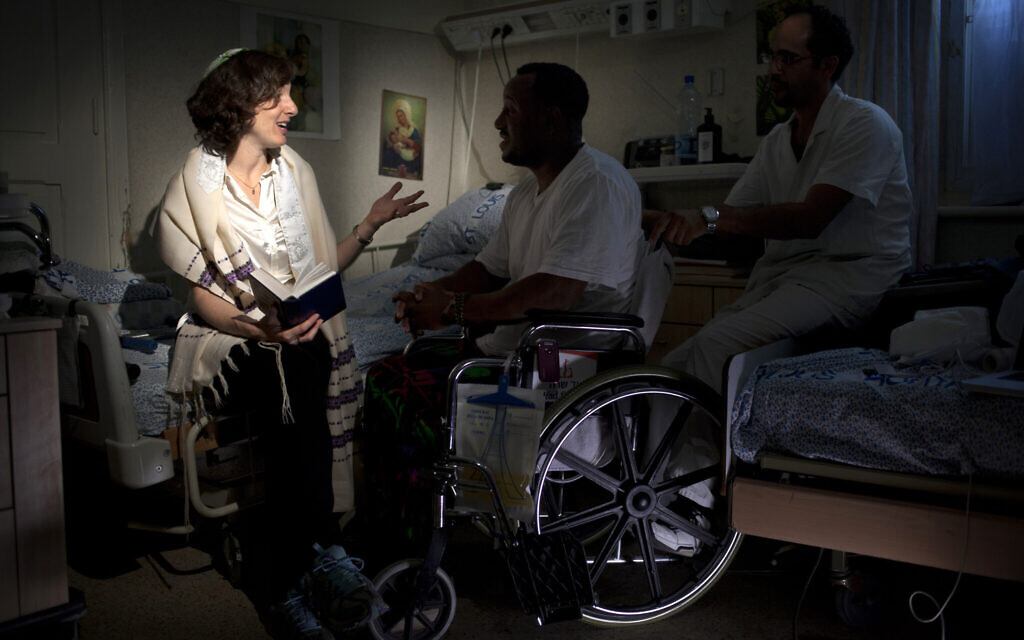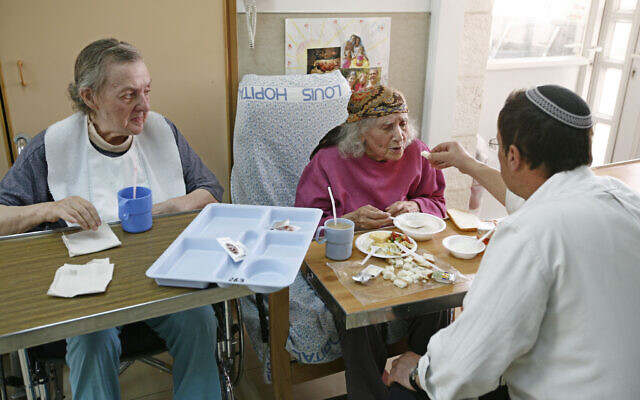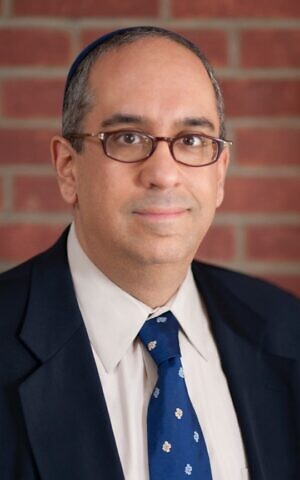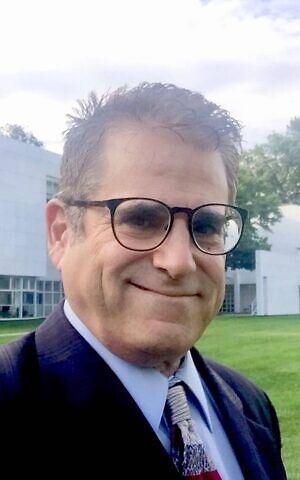With a ‘new normal’ causing most clerical duties to be conducted via phone or video chat, spiritual caregivers try to adapt without changing what works most

NEW YORK — When the spiritual guidance team at Massachusetts General Hospital gathered for the last time 10 days ago, they realized two things: everything about how they practiced would change and nothing about their practice should change.
“The most often used phrase is that we provide a ministry of presence. I had a teacher who told us, ‘don’t just do something, stand there,’” Mass General’s Rabbi Benjamin Lanckton told The Times of Israel via telephone. “Our job is to be a non-anxious presence, and without face-to-face interaction that’s hard. But what I’ve learned over the past week is that virtual visits are not nothing.”
Welcome to the world of “tele-chaplaincy.”
Giving comfort in the time of COVID-19 presents unique challenges for Jewish clergy, who like their colleagues across faiths, are used to connecting in person. Now they must deliver that comforting, quiet presence for patients and hospital personnel from afar. It’s a need that’s only growing as the number of coronavirus cases in the US surges. As of March 25 there were 53,852 confirmed cases nationwide and 728 deaths, according to the New York Times.
On a normal day at Mass General, Lanckton might stop by a patient’s room and offer words of solace, a story, a small joke or perhaps a prayer. He might speak with a member of the custodial team who needs a comforting word or chat with a physician on the surgical floor. Now there is no normal.

Instead he checks in with his colleagues each morning via Zoom. Then he’ll begin making rounds on the telephone. Recently he called a patient who was in the surgical intensive care unit.
“I said a prayer for healing and then I waited,” Lanckton said. “It was a long silence and at first I thought we got cut off. Then she spoke, her voice breaking a little. I think if we can still do this, say something meaningful, then we are still doing something for patients,” he said.
Sometimes he and his team can do something more than make a phone call. Last week he worked with his colleagues to make sure an Orthodox patient, whose family could no longer visit because of new restrictions, could at least receive a prayer book from them.

But making the transition to online chaplaincy has not gone without a hitch, said Rabbi Neil Loevinger, spiritual care director and ethics coordinator at Vassar Brothers Medical Center in Poughkeepsie, New York.
“For some patients it’s great. It’s like calling an old friend and feels very natural. For others it can be more difficult, if they have trouble using a phone or technology,” he said.
Loevinger said adaptability is key, and so where a phone call might work for one patient, a video conference might better suit another patient.
At Vassar Brothers, which is part of the Nuvance Healthcare System, Loevinger said he and his fellow chaplains are working together to make this new reality work for their patients — and for the hospital personnel, whom they also serve.
“I look to the story of Passover, which is, in part, about adapting to a new reality,” Loevinger said. “The Israelites went on a journey and it didn’t always go smoothly, but their story gives us a model for how to do that. Throughout history Jews have been tremendously adaptable, whether by choice or circumstance.”
Meanwhile it’s been three weeks since Rabbi Shaul Praver, who is both a prison and hospital chaplain in Connecticut, stood beside someone’s bed. Instead, he counsels patients and hospital staff on the phone.
He said he and other chaplains are learning on the job.
“We know that 90 percent of communication is body language, but we must also remember how much we can convey in our tone of voice, cadence and trope. We are finding ways to compensate, and we are all sharpening our auditory skills,” Praver said.

As these chaplains master new methods of communication, they are also steeling themselves for what’s to come — increasing numbers of coronavirus patients, patients dying alone, and family members unable to visit dying relatives. They are also bracing for hospitals pushed beyond capacity and for hospital personnel to be stretched beyond their limits.
“Our last face-to-face meeting felt very much like the one we had immediately following the Boston Marathon bombing,” Lanckton said. “The difference between then and now is, that incident was time-limited. Now it feels like we’re perpetually at the moment where the bomb is going off.”
That sense of heightened anxiety makes it vital that chaplains check in with each other. Neshama, the Association of Jewish Chaplains, holds regular Zoom check-in calls for chaplains. And as they work to provide spiritual connectedness while social distancing, the spiritual caregivers know they’re not immune to the virus.
Indeed Rabbi Mordechai Katz, a longtime member of the spiritual guidance team at Manhattan’s New York University Langone Hospital, remains in critical condition due to the virus. The hospital couldn’t comment because of privacy laws.
It feels like we’re perpetually at the moment where the bomb is going off
“This is a very challenging time to be a chaplain. The need is so great, and what we do, which is help people find their spiritual and resilient core, is so necessary in the weeks to come,” Loevinger said.
As reported by The Times of Israel
